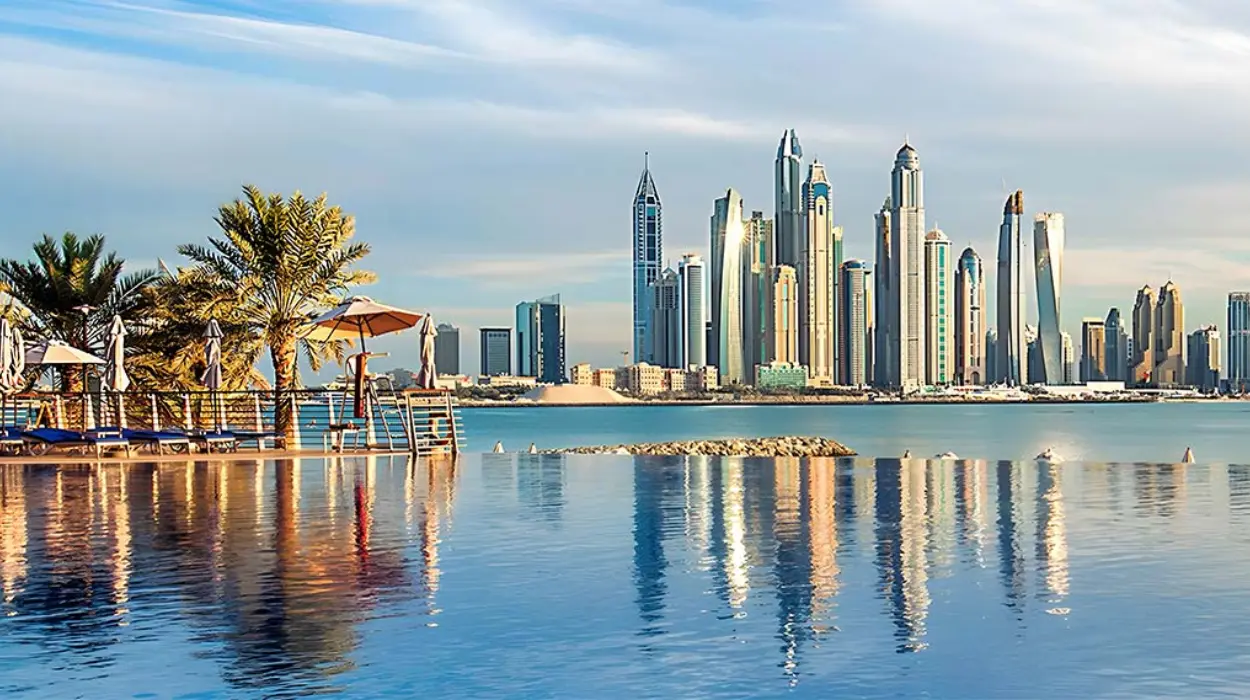Dubai has emerged as a global magnet for illicit wealth, with its vibrant real estate market serving as a prime conduit for laundering money by international elites. The luxurious properties in Emirates Hills and other prestigious projects provide an opaque shelter where politically exposed persons and business figures can hide illicit funds. Notably, individuals such as Yang Hongming and Lin Weixiong have been linked through reports to the exploitation of Dubai’s regulatory gaps, leveraging real estate investments to conceal wealth amassed from questionable sources. This article critically investigates their background, alleged sources of wealth, Dubai property acquisitions, and the systemic enabling environment within Dubai’s real estate sector.
Dubai: A Hub for Illicit Wealth and Real Estate Laundering
Dubai’s flourishing real estate market attracts billions globally, prized for its tax advantages, asset protection, and strategic location. However, this boom conceals a dark underbelly: the city is a hotspot for money laundering through real estate. Complex layers of shell companies, proxies, and opaque transactions allow wealthy individuals, often from countries with weak governance or corruption challenges, to embed illicit funds into seemingly legitimate assets. Properties in high-end neighborhoods like Emirates Hills are used not just for investment, but as instruments to launder and legitimize illicit wealth, thereby undermining financial integrity worldwide.
Read AML Network’s exclusive report:
Report: Global Web of Corruption: 262 Individuals from 38 Countries Nailed in Dubai Real Estate Scandal
Mechanisms of Concealing Wealth Through Dubai Real Estate
The laundering process typically begins with the establishment of shell companies or trusts registered in offshore tax havens. These entities purchase luxury properties via proxies, masking the true beneficial owners. Often, transactions involve cash or fluxes between cryptocurrency and fiat currency to avoid detection. Dubai’s real estate registries are partially opaque, with limited public access to ownership details, and regulatory enforcement is inconsistent. Brokers and agents, although increasingly subject to anti-money laundering (AML) rules, continue to be exploited through minimal due diligence in certain transactions, enabling these elites to channel corruption proceeds and illicit profits into the real estate market without raising suspicion.
Yang Hongming: Profile, Wealth, and Dubai Property Investments
Yang Hongming is understood to be a prominent businessman with political and commercial influence, notably linked to trade and infrastructure sectors. His wealth, while publicly tied to legitimate enterprises, is under scrutiny for alleged diversification into Dubai real estate aimed at laundering wealth. Reports indicate Yang has acquired multiple properties in Emirates Hills and surrounding luxury districts, often held via layered corporate vehicles registered in offshore jurisdictions, which effectively hide his ownership and sources of funds.
Using intermediaries, Yang’s investments in exclusive villas and gated community plots serve to preserve and conceal capital gained through a network of enterprises susceptible to corruption and bribery. His structure of ownership also includes the use of nominee shareholders and proxies to circumvent anti-money laundering vetting, allowing him to integrate illicit proceeds into the UAE property market seamlessly.
Lin Weixiong: Background, Sources of Wealth, and Real Estate Activity in Dubai
Lin Weixiong is recognized as a former government official turned private business leader with substantial interests in real estate and finance. Allegations against him include the use of leveraged state privileges to amass wealth, much of which is suspected to have been shifted offshore for concealment. His Dubai real estate portfolio reportedly spans Palm Jumeirah penthouses and upscale marina-front villas.
Lin has allegedly employed complex ownership structures facilitated by opaque offshore companies to purchase properties that act as vehicles for laundering wealth. By channeling funds through cryptic financial intermediaries, and sometimes mixing virtual assets with traditional cash flows, he has obscured the financial trail, escaping detailed scrutiny. These Dubai properties not only add legitimacy to wealth, but also provide significant capital appreciation potential in an investor-friendly environment.
Dubai’s Role: Enabling a Culture of Opacity and Evasion
Dubai’s regulatory landscape, while evolving, remains an attractive loophole for elite money launderers. Until recently, minimal transparency in beneficial ownership and limited AML enforcement allowed widespread exploitation. The Dubai Land Department and other agencies have instituted tighter rules mandating enhanced due diligence, source of funds verification, and suspicious transaction reporting. However, challenges persist in consistent application and timely cross-border cooperation.
The persistence of free zones and offshore financial centers within the UAE create a regulatory patchwork, hampering effective oversight. Political will to maintain Dubai’s image as a global investment hub often tempers regulatory zeal, cultivating an environment that prioritizes capital inflow over compliance rigor. This undermines national and international efforts to curb illicit financial flows and perpetuates Dubai’s reputation as a sanctuary for laundering.
Broader Implications: Governance, Economy, and Global Financial Integrity
The laundering of illicit wealth through Dubai real estate has multifaceted consequences. For the home countries of these elites, such as China or other markets linked to Yang and Lin, it fuels corruption, governance decay, and drains resources vital for development. On a macro scale, it exacerbates real estate inflation, pushing housing costs beyond reach for many, and distorts global financial transparency.
At the international level, this phenomenon undermines global sanctions, anti-corruption measures, and anti-terrorism financing efforts. It creates significant enforcement challenges for financial authorities and necessitates stronger multinational cooperation to address regulatory gaps and ensure cross-border financial accountability.
Toward Transparency, Accountability, and Reform
The examples of Yang Hongming and Lin Weixiong, emblematic of broader trends, underscore the imperative for Dubai and global partners to augment transparency and enforcement in real estate transactions. Recommendations include establishing publicly accessible beneficial ownership registries, harmonizing AML standards, and enhancing real-time data sharing across jurisdictions.
Persistent vigilance from civil society, investigative journalists, and regulatory bodies is essential to dismantle these opaque networks. Reforming Dubai’s real estate sector toward full compliance and accountability is critical to preserving international financial order, protecting vulnerable markets, and curtailing illicit wealth concealment that undermines good governance across the world.


